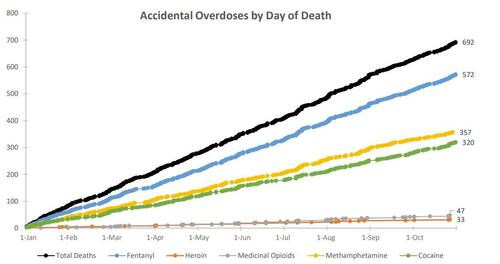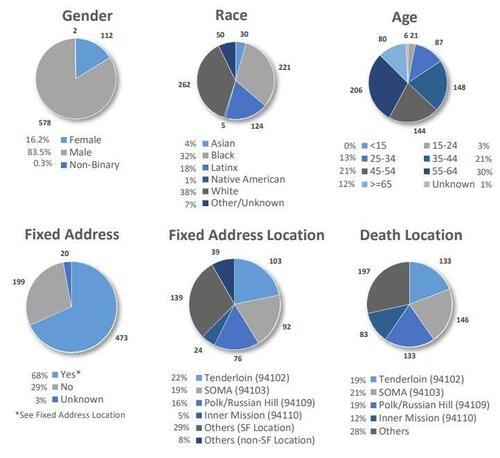With 53 novel FDA approvals already on the books in 2023—38 of those for rare diseases—several key decisions remain in December, including one that would mark the country's first CRISPR therapy. But it’s not always good news that companies have to deliver to their stakeholders; the year has also had its fair share of Complete Response Letters.
BioSpace is committed to keeping you up-to-date on all the FDA’s actions in this FDA Decision Tracker.
December
Dec 5:
Another rare disease saw an FDA approval Wednesday as the regulator approved Novartis’ Fabhalta (iptacopan) for paroxysmal nocturnal hemoglobinuria (PNH).
Fabhalta inhibits Factor B, which plays a key role in the proximal alternative pathway of the complement cascade. In PNH, heightened activity of the complement system prematurely destroys red blood cells, causing symptoms such as anemia and thrombosis. In a Phase III study, 82.3% of patients—who had residual anemia after anti-C5 treatment—saw a sustained increase in hemoglobin levels even without transfusions compared with 0% of those who stayed on anti-C5 treatments.
As of Dec. 4, 37 rare disease treatments had been approved by the FDA in 2023, according to stats provided to BioSpace by the National Organization for Rare Disorders.
Dec 1:
Eli Lilly can add two more indications for Jaypirca (pirtobrutinib) as the FDA greenlit the reversible Bruton's tyrosine kinase (BTK) inhibitor for chronic lymphocytic leukemia or small lymphocytic leukemia. Jaypirca is specifically intended for adults who have undergone at least two prior lines of therapy, including another BTK inhibitor and a BCL-2 inhibitor.
Jaypirca was first approved for relapsed or refractory mantle cell lymphoma in January. That approval broke new ground, as Jaypirca was the first-ever reversible BTK inhibitor to be authorized by the FDA. It is still the only such drug on the market.
November
Nov 27:
SpringWorks Therapeutics and people with desmoid tumors—a rare type of non-cancerous tumor that can be locally aggressive—have a new treatment to be thankful for. On Monday, the FDA approved nirogacestat, to be marketed as Ogsiveo, as the first-ever therapy for this potentially painful and physically debilitating condition.
In a pivotal trial of 142 adult patients with progressing desmoid tumors not amenable to surgery, Ogsiveo elicited “clinically meaningful and statistically significant improvement” in the primary endpoint of progression-free survival compared to placebo. An additional efficacy measure, objective response rate, was also statistically different, with 41% of patients receiving Ogsiveo seeing a response versus just 8% of those on placebo.
Nov 27:
As the company anticipated and warned investors last month in an SEC filing, the FDA on Monday rejected Aldeyra Therapeutics’ dry eye disease candidate. In a Complete Response Letter, the regulator stated that Aldeyra’s New Drug Application did not demonstrate “efficacy in treating ocular symptoms associated with dry eyes” and informed the company that “at least one additional adequate and well-controlled study” would be required to demonstrate efficacy.
Aldeyra has already submitted a Special Protocol Assessment for a crossover clinical trial and expects to hear FDA feedback on the plan in December. Depending on this feedback and assuming that the results of this trial are positive, Aldeyra intends to resubmit the NDA during the first half of 2024.
Nov 17:
AstraZeneca scored a first-in-class approval for its pan-AKT inhibitor capivasertib as a treatment for adults with hormone receptor–positive and HER2-negative locally advanced or metastatic breast cancer whose tumors also have PIK3CA, AKT1 or PTEN mutations. Dubbed Truqap, the new treatment is approved in combination with Astra’s Faslodex.
The FDA’s green light was based on results from the Phase III CAPItello-291 where the combination cut the risk of disease progression or death by half compared to Faslodex alone.
“The rapid U.S. approval of Truqap reinforces the important role of the PI3K/AKT/PTEN pathway in HR-positive breast cancer and the critical need to test patients at the time of diagnosis, as up to fifty percent have tumors with these alterations,” Dave Fredrickson, executive vice president of Astra’s oncology business unit, said in a prepared statement.
Nov 17:
Astellas and Pfizer won FDA approval Friday for Xtandi, an androgen receptor signaling inhibitor, to treat nonmetastatic castration-sensitive prostate cancer (nmCSPC). Xtandi—which is also approved for four other types of prostate cancer—is the first androgen receptor signaling inhibitor authorized to treat nmCSPC with biochemical recurrence at high risk for metastasis, according to the companies’ announcement.
The supplemental approval was granted based on data from the Phase III EMBARK trial, which studied Xtandi plus leuprolide, placebo plus leuprolide (a synthetic hormone regulator) and Xtandi as a monotherapy. After five years, patients treated with the combination had a metastasis-free survival of 87.3%. This was compared to 80% in the Xtandi monotherapy arm and 71.4% in the leuprolide-only cohort.
Nov 16:
Merck’s Keytruda racked up another indication Thursday, this time for the first-line treatment of stomach cancer. Specifically, Keytruda was approved in combination with chemotherapy to treat adults with locally advanced unresectable or metastatic gastric or gastroesophageal junction adenocarcinoma. The approval marks the seventh for the anti-PD-1 superstar in gastrointestinal cancer and its 38th overall in the U.S.
The first-line nod was given based on data from the Phase III KEYNOTE-859 study, where the Keytruda-based regimen cut the risk of death by 22% versus chemotherapy alone. Median survival was just over a month longer with Keytruda treatment at 12.9 months versus 11.5 months.
Nov 15:
Patients with ROS1-positive non-small cell lung cancer have a new treatment option after the FDA approved Bristol Myers Squibb’s Augtyro (repotrectinib) on Wednesday. A particularly aggressive form of lung cancer, ROS-positive NSCLC is difficult to treat and can often spread to the brain.
In the pivotal TRIDENT-1 study, Augtyro, a tyrosine kinase inhibitor (TKI) targeting ROS1 oncogenic fusions, led to an objective response rate of 79% in TKI-naive patients. Among patients pretreated with one prior ROS1 TKI and no prior chemotherapy, the ORR was 38%. The median duration of response (mDOR) for TKI-naive patients was 34.1 months and 14.8 months for the pretreated group.
Nov 15:
Patients with kidney failure receiving chronic hemodialysis are vulnerable to contracting catheter-related bloodstream infections. On Wednesday, the FDA greenlit a treatment designed to reduce these infections: CorMedix’s DefenCath, a combination of the amino acid derivative taurolidine and the anticoagulant heparin.
In a Phase III trial, DefenCath lowered the incidence of catheter-related bloodstream infections by 71% versus heparin alone. The efficacy results were so impressive that an Independent Data Safety and Monitoring Board recommended the study’s early termination.
It has not been an easy path to the finish line for CorMedix, which was previously turned away twice by the FDA. Both Complete Response Letters were due to manufacturing and supplier issues. CorMedix expects DefenCath to be available in the inpatient setting in the first quarter of 2024.
Nov 9:
Thursday, the FDA approved Valneva’s Ixchiq as the first vaccine to prevent disease caused by the chikungunya virus. Ixchiq is intended for adults at increased risk of exposure to the virus, which is typically transmitted through the bite of an infected mosquito. Those at highest risk live in the tropical and subtropical regions of Africa, Southeast Asia and parts of the Americas, according to the FDA’s announcement.
Safety of Ixchiq was demonstrated in two clinical studies made up of approximately 3,500 participants; in one study, around 1,000 people received a placebo. The most common side effects included headache, fatigue, muscle pain and joint pain. Efficacy was based on a U.S. study of 266 people who received Ixchiq versus 96 on placebo. Protective antibody levels were shown in non-human primates that had received blood from people who had been vaccinated. The FDA reported that “almost all vaccine study participants achieved this antibody level.”
Nov 9:
Takeda is having a big week. One day after winning approval of colorectal cancer drug Fruzaqla, the Japanese pharma announced the FDA approval of Adzynma for congenital thrombotic thrombocytopenic purpura (cTTP). Adzynma is approved as either a preventive or on demand enzyme replacement therapy for adult and pediatric patients with cTTP.
A very rare, inherited disorder, cTTP is caused by a disease-causing mutation in the ADAMTS13 gene, which is responsible for making the ADAMTS13 enzyme that regulates blood clotting. Adzynma, a purified recombinant form of this enzyme, provides a replacement for the low levels of the deficient enzyme in patients with cTTP. Thursday’s approval marks the first treatment for this patient population.
Nov 8:
Wednesday turned out to be a big day at the FDA. Hours after greenlighting Eli Lilly’s obesity treatment Zepbound, the regulator approved Takeda’s Fruzaqla (fruquintinib) for previously treated patients with metastatic colorectal cancer. Fruzaqla targets the VEGF-1, -2 and -3 receptors, which together play a crucial role in the formation of the blood vessels that sustain tumors. The drug’s strong selectivity allows for higher doses while minimizing off-target effects for sustained inhibition of its targets.
The approval, which came 20 days before Takeda’s scheduled PDUFA date, makes Fruzaqla the “first and only selective inhibitor of all three VEGF receptor kinases approved in the U.S. for previously treated mCRC regardless of biomarker status,” according to the Japanese pharma.
Nov 8:
A new chapter opened Wednesday in the obesity treatment space as the FDA approved Eli Lilly’s Zepbound (tirzepatide) injection for chronic weight management in adults with obesity or excessive weight with at least one weight-related condition, such as hypertension, type 2 diabetes (T2D) or high cholesterol. Tirzepatide, the active ingredient in Zepbound, is already approved in Lilly’s Mounjaro for T2D.
Zepbound is the first and only approved treatment activating two incretin hormone receptors, GIP and GLP-1, to tackle an underlying cause of excess weight, according to Lilly’s announcement. Zepbound won approval on the strength of the Phase III SURMOUNT-1 and SURMOUNT-2 trials, where patients taking Lilly’s drug saw a “statistically significant” reduction in body weight compared to their placebo counterparts. The Indianapolis–based pharma intends to make Zepbound available in the U.S. by the end of this year.
Nov 1:
Erosive GERD patients have a new treatment option after the FDA greenlit Phathom Pharmaceuticals’ Voquezna (vonoprazan) tablets—which the gastrointestinal-focused company claims is the “first major innovation to the U.S. erosive GERD market in over 30 years.”
Approval of Voquezna—a novel, oral small molecule potassium-competitive acid blocker—was granted based on results of the Phase III PHALCON-EE study, which compared the drug to the acid-reducer lansoprazole in terms of healing and maintenance of erosive GERD and associated heartburn symptom relief. Voquezna met the study’s primary endpoint of non-inferiority after eight weeks of treatment and showed a healing rate of 93% compared to 85% for lansoprazole.
Nov 1:
Merck’s blockbuster Keytruda racked up another FDA approval Wednesday, as the company announced that the anti-PD-1 therapy is now authorized—in combination with gemcitabine and cisplatin—to treat patients with locally advanced unresectable or metastatic biliary tract cancer (BTC). BTC is the sixth U.S. GI cancer indication for Keytruda, which is also approved for esophageal or gastroesophageal cancer and HER2-positive gastric or gastroesophageal junction (GEJ) adenocarcinoma, among others.
Approval in BTC was granted based on results of the Phase III KEYNOTE-966 trial, where Keytruda elicited a “significant overall survival benefit” in this patient population versus chemotherapy alone, according to Merck’s announcement. Keytruda reduced the risk of death by 17% over chemo alone, with patients on the Keytruda plus chemo regimen surviving for a median 12.7 months versus 10.9 months for those receiving chemotherapy alone.



